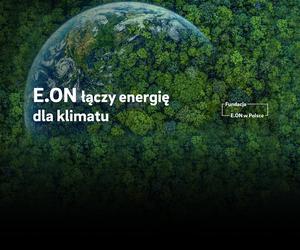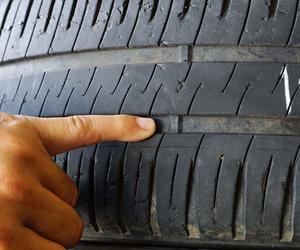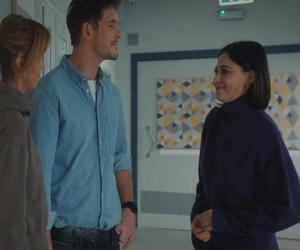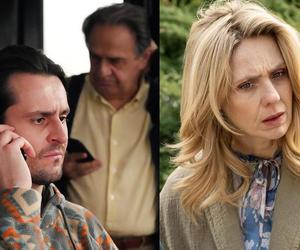Zadanie 1. (0–3)
Usłyszysz dwukrotnie trzy teksty. Z podanych odpowiedzi wybierz właściwą, zgodną z treścią nagrania. Zakreśl literę A, B lub C.
Tekst 1.
1.1. The speaker
A. tells a humorous story of a person who misheard song lyrics.
B. criticizes the ways in which singers sing their lyrics.
C. explains why people mishear some song lyrics.
Tekst 2.
1.2. Which of the following stated in the text is an opinion and not a fact?
A. Coffee causes irritation and lack of concentration.
B. Coffee reduces the pain after physical exercises.
C. Coffee increases your cholesterol level.
Tekst 3.
1.3. This text is about
A. using bank transfers often.
B. a large money donation.
C. an accidental mistake.
Zadanie 2. (0–4)
Usłyszysz dwukrotnie cztery wypowiedzi dotyczące mieszkania w akademiku. Do każdej wypowiedzi (2.1.–2.4.) dopasuj odpowiadające jej zdanie (A–E). Wpisz rozwiązania do tabeli.
Uwaga: jedno zdanie zostało podane dodatkowo i nie pasuje do żadnej wypowiedzi.
This speaker mentions:
A. eating facilities in a specific dorm.
B. the appearance of the dorm bedrooms.
C. a person who lives in the dorm with him/her.
D. a bad experience during the speaker’s stay in the dorm.
E. belongings that you should take to your dorm from home.
Zadanie 3. (0–5)
Usłyszysz dwukrotnie wywiad z twórcą pewnej strony internetowej. Z podanych odpowiedzi wybierz właściwą, zgodną z treścią nagrania. Zakreśl literę A, B, C lub D.
3.1. How did Frank’s project begin?
A. Frank posted some of the secrets on his website.
B. Frank distributed some postcards around the country.
C. Frank personally handed out 3000 postcards to people.
D. Frank invited people on the Internet to share their secrets.
3.2. After receiving a postcard from a young man, Frank
A. wrote back to him.
B. sent a postcard to himself.
C. found him on the Internet.
D. recognized the person who sent it.
3.3. The most common secret that Frank gets is
A. a serious one.
B. a humorous one.
C. a frightening one.
D. a complicated one.
3.4. People who send their secrets to Frank
A. want to be identified.
B. do it on Facebook as well.
C. expect an answer from him.
D. remain practically anonymous.
3.5. Answering the last question, Frank
A. advises people on how to get inspiration.
B. warns people against dangers of the Internet.
C. mentions the outcomes of the Internet’s popularity.
D. encourages people to engage in virtual communities.
Zadanie 4. (0–4)
Przeczytaj tekst, który został podzielony na trzy części (A–C), oraz pytania go dotyczące (4.1.–4.4.). Do każdego pytania dopasuj właściwą część tekstu. Wpisz rozwiązania do tabeli.
Uwaga: jedna część tekstu pasuje do dwóch pytań.
In which paragraph does the author mention
4.1. the person who created the policy?
4.2. the amount of sleep that teenagers get?
4.3. particular effects of not getting enough sleep?
4.4. a problem which may stop the introduction of the policy?
A.
It’s a fact that teenagers need more sleep than adults, because of the hormonal changes in their bodies. This means that teenagers naturally become tired later in the day and naturally wake later, making it incredibly difficult to solve the problem by simply forcing them to go to bed earlier. However, pediatricians have a new prescription for schools: later start times for teens. Delaying the start of the school day until at least 8:30 a.m. would help curb their lack of sleep, which has been linked to depression, obesity, poor performance in school and on standardized tests and car accidents from drowsy driving, the American Academy of Pediatrics says in a new policy.
B.
Studies have found that most U.S. students in middle school and high school don’t sleep as long as they should – 8.5 to 9.5 hours on school nights; and that most high school seniors get an average of less than seven hours. However, at present more than 40 percent of the nation’s public high schools start classes before 8 a.m. And even when the buzzer rings at 8 a.m., school bus pickup times typically mean kids have to get up before dawn if they want that ride. School buses often make multiple runs each morning for older and younger students. Unfortunately, adding bus drivers and rerouting buses is one of the biggest financial obstacles to later start times.
C.
Dr Judith Owens, the director of Sleep Medicine at Children’s National Medical Center in Washington D.C. and the author of the policy says: ‘Evidence on potential dangers for teens who get too little sleep is extremely compelling. It has been proved that the effects of getting too little sleep are dramatic. Delaying start times can lead to more nighttime sleep and improve students’ motivation in class and their mood. Whether there are broader, long-term benefits requires more research, but I believe that it can really have a dramatic, positive impact on the students.’
Zadanie 5. (0–4)
Przeczytaj tekst, z którego usunięto cztery fragmenty. Wpisz w luki (5.1.–5.4.) litery, którymi oznaczono brakujące fragmenty (A–E), tak aby otrzymać logiczny i spójny tekst.
Uwaga: jeden fragment został podany dodatkowo i nie pasuje do żadnej luki.
RADIO CONTESTS’ FREAK
I go all in on my hobbies. Most people, though, know me as a suburban dentist, wife and mom of two young kids. 5.1. ________
When everyone else I know listens to the radio, they stay on one channel, listen to a song or two and change the station when commercials start. I’m much more methodical than that. I flip channels almost constantly, hunting for mention of a contest. I sit in my car for hours if I know there are a few contests coming on. I know the best times to call in, and I know what radio stations are the easiest and most difficult to win on.
5.2. ________ I’m not sure if it’s the amount of time that I devote to listening for contests, random luck or the simple fact that more and more people aren’t listening to FM radio anymore, but I do win.
In the past 5 years I’ve won a couple of DVD sets, movie passes to my local cinema, and a boatload of concert tickets. My biggest win was an all-expenses-paid trip to the Hollywood Film Awards in California. Best date night ever.
I got my first taste of victory way back in middle school. I was the 100th caller to my favorite radio station, and I won backstage passes to an N’Sync concert. Wow. Just WOW! 5.3. ________. From then on, I was hooked, and whenever I listened to the radio, I would call into any and all contests.
So when you see me in my dental clothing and you think little of it, know that I’m secretly a radio-contest superhero. 5.4. ________ It’s because I’m going to the hottest concert in town, courtesy of my local radio station.
A. Not because I’m really strong, or unusually brave or have a desire to throw myself into danger to protect others.
B. I stopped for some time after attending the concert – simply because I didn’t like that band.
C. Most of this is done on my commute, but I waste a lot of time trying to win any and all radio contests.
D. But when I’m not hanging out with my family or fixing teeth, I’m obsessing about winning radio contests.
E. As any teenage girl can attest, that was much better than merely winning the lottery.
Zadanie 6. (0–5)
Przeczytaj dwa teksty dotyczące samolotów. Z podanych odpowiedzi wybierz właściwą, zgodną z treścią tekstu. Zakreśl literę A, B, C lub D.
Tekst 1.
I got on the wrong plane.
This shouldn’t really be possible. Maybe at the New York City airport in 1929, when it was propeller planes the size of small cars all jumbled across a dusty field like some sort of flea market – maybe then. But now? Checks, double-checks, passports and boarding passes. An entire miniature city has been constructed with one objective: to make sure you don’t get on the wrong plane. Well, also to make sure you purchase something before you don’t get on the wrong plane. But mostly the first part.
So I don’t know how it happened. I’ll admit, I was half-asleep and I wasn’t paying attention. I’ve made this trip many, many times; it’s what my occupation includes – from New York to Washington and back. No frills. Lots of daily commuters.
The plane took off at 5:40 a.m. and when it landed in Washington, I would rush straight to work. But now, I slept.
The next thing I experienced was the thump-thump-thump of landing. My eyes snapped opened. The cabin was virtually empty. And it didn’t look normal. It was… narrower? But what did I know: I always slept on the plane.
I pushed up my window-shade and immediately wished I hadn’t. They must have changed the gate. It’s always gate 11. It’s never not gate 11. The sad truth of the airport is that even if you’re so excited to be there, even if you’re about to start your vacation, the people who work at the airport are doing the same thing they did yesterday, or forty-five minutes ago, and they’re doing it at the same gate.
And yet, they must have changed it.
Here’s my theory, developed in real-time: I showed up at the old gate, handed over my boarding pass – printed at home on an aging printer that will no longer produce the color red. Maybe, through some strange printer error, it smudged the bar-code in such a way as to produce an encoded string that passed muster. Maybe my boarding pass was defective and yet, presented at precisely the right wrong gate, effective. I realize this explanation is totally implausible, but I found myself drawn to it because of what I noticed out the window.
The unbelievably vast ocean glittering in the distance. Nothing out of the ordinary, except that it was the ocean, and we were never ever supposed to be flying over the ocean.
adapted from The Wrong Plane by Robin Sloan
6.1. For the man, this flight was supposed to be
A. a journey to a vacation destination.
B. a return trip from Washington.
C. a business trip to New York.
D. a part of his work routine.
6.2. The man became sure he was on the wrong plane when he
A. spotted the change in the cabin size.
B. noticed something unlikely outside it.
C. saw that they landed at a different gate.
D. looked at his badly-printed boarding pass.
Tekst 2.
THE FIRST ELECTRIC PLANE FLIGHT OVER ENGLISH CHANNEL
With zero fanfare, an independent French pilot beat aeronautics giant Airbus by about 12 hours in the race to fly the first electric plane across the English Channel – a symbolically important step toward making battery-powered flight viable in the long term.
Several people and companies in different countries are developing electric planes in hopes of offering a fuel-free, noise-free, emissions-free flight alternative for the future. So the battle to perform world ‘firsts’ in electric planes is heating up as the technology becomes more durable.
European planemaker Airbus flew its E-fan plane from Lydd, England, to the French port of Calais on Friday morning. The plane operates exclusively on batteries, and since there’s no oil or water, the jet releases zero emissions. Yet pilot Hugues Duval had also long dreamed of making that flight and knew that his two-engine, one-seat CriCri plane was ready to cross the Channel. So instead of letting Airbus grab all the glory Friday, he secretly set out for a Calais airfield the day before.
‘I was really motivated to go,’ he said, describing it as a family goal, to repeat a journey his father made across the Channel. ‘Our vocation (as pilots) is to take on challenges.’ Duval said he reached the speed of 145 km/h on his 50-kilometres journey. Because he lacked authorization to take off from Calais, a larger, fuel-driven plane towed his 220-pound Cricri for the start of the trip. Then he separated from the helper plane and flew autonomously to Dover and then back to Calais, landing safely. When he approached the Calais airfield again, he said, ‘The fact that you are flying over land is reassuring.’ ‘Then when you land well you are happy,’ he added, calling it an ‘important moment’ after years of fine-tuning the plane and flying it over land.
For Airbus’ flight Friday, security professionals were out in full force, with rescue speed boats trailing the E-fan. Airbus officials gathered in Calais to celebrate the landing of the E-fan would not comment on Duval’s trip.
adapted from www.stuff.co.nz
6.3. Which is true about electric planes?
A. They have to be assisted by fuel-driven planes.
B. They have to fly across the English Channel.
C. Their development is underway.
D. They produce some emissions.
6.4. The text was written
A. before the winner has been announced.
B. once Airbus E-fan defeated CriCri.
C. sometime during the plane race.
D. after both plane flights.
6.5. Both texts are about
A. common plane problems.
B. an unexpected situation.
C. dangers of air travel.
D. a misunderstanding.
Zadanie 7. (0–4)
Przeczytaj tekst. Z podanych odpowiedzi wybierz właściwą, tak aby otrzymać logiczny
i gramatycznie poprawny tekst. Zakreśl literę A, B, C lub D.
THE SHOES THAT GROW
Shoes are hugely important for protecting our feet, 7.1. ________ in places where healthcare
provision is limited. Unfortunately, shoes aren’t always available for those living in poverty, let
alone shoes that are the right size. Kenton Lee, the man who came 7.2. ________ the idea for
The Shoes That Grow, saw this problem first-hand while on a trip to Nairobi, Kenya, in 2007.
Young children were wearing shoes that were way too small for them, with their toes poking
out of the ends.
Kenton’s experience 7.3. ________ to the development of The Shoes That Grow, with a flexible
rubber sole and adjustable leather straps fitting over the top of the foot and around the heel.
Available in two sizes, the shoes are said to last five years. They’re easy to clean, light and able
to be compressed for transportation, 7.4. ________ lots of pairs can be delivered at the same
time.
adapted from www.gizmag.com
7.1.
A. extremely
B. particularly
C. enormously
D. accidentally
7.2.
A. back
B. across
C. up with
D. down to
7.3.
A. led
B. is leading
C. would lead
D. will have led
7.4.
A. meant
B. to mean
C. meaning
D. what means
Zadanie 8. (0–4)
Przeczytaj tekst. Uzupełnij każdą lukę (8.1.–8.4.), przekształcając wyraz podany w nawiasie,
tak aby otrzymać logiczny i gramatycznie poprawny tekst. Wymagana jest pełna poprawność
ortograficzna wpisywanych wyrazów.
WHY DO CHAMELEONS CHANGE COLOURS?
Chameleons are one of the five coolest species in the world. They’re awesome for a number of
reasons: their funny, little two-toed feet and their super curly tails. What’s probably best about
them, though, is their ability to change colours. But all those changing colors, contrary to
popular 8.1. ___________________________ (BELIEVE), have nothing to do with blending into
their surroundings. Chameleons are usually pretty well camouflaged to begin with so they don’t
need to 8.2. ___________________________ (VISION) merge into the background. Instead,
chameleon color-changing is typically caused by physical, physiological and emotional changes.
If they’re feeling fussy, angry, 8.3. ___________________________ (ANXIETY) or combative,
they’ll change colors. They’ll also change colors as a way of communicating in various manners
and to pick a fight with a 8.4. ___________________________ (COMPETITION). Light and
temperature play a big part, too, in how chameleons look.
adapted from www.howstuffworks.com
Zadanie 9. (0–4)
Przetłumacz na język angielski podane w nawiasach fragmenty, tak aby otrzymać logiczne
i gramatycznie poprawne zdania. Wymagana jest pełna poprawność ortograficzna wpisywanych
fragmentów.
Uwaga: w każdą lukę możesz wpisać maksymalnie pięć wyrazów.
9.1. I (żałuję, że nie pomogłem) ________________________________________________________
my mother in cleaning the house. Now she’s angry with me.
9.2. I d idn’t l ike t his c ity a t f irst b ut a fter s ome t ime I ( przyzwyczaiłem się do mieszkania)
________________________________________________________ here.
9.3. I can’t talk to you because I’m watching a film. I’ll call you (jak tylko się skończy)
_______________________________________________________________ .
9.4. I’d like to play football or go jogging more often but I have (za mało czasu) _____________
___________________________________________ for practising sports.
Zadanie 10. (0–13)
Wypowiedz się na jeden z poniższych tematów. Twoja praca powinna zawierać od 200 do 250 słów i spełniać wszystkie wymogi typowe dla formy wskazanej w poleceniu. Zakreśl numer wybranego tematu.
1. Coraz więcej dużych miast tworzy sieć ścieżek rowerowych, redukując tym samym szerokość jezdni. Napisz rozprawkę dotyczącą tego zjawiska, w której uwzględnisz punkt widzenia rowerzysty oraz kierowcy samochodu.
2. Gazeta ogłosiła konkurs na najepszą propozycję akcji wspierającej czytelnictwo w twoim mieście. Napisz list do gazety. Opisz w nim założenia swojego pomysłu i sposoby jego realizacji.
TRANSKRYPCJA NAGRAŃ
Zadanie 1.
Tekst 1.
Man: You’re in the car rocking out to the radio with your friends when suddenly everyone is
looking at you… and then you realize you got the lyrics of the song completely wrong! What
happened? Well, the scientific justification is that when we talk to someone, we understand
some of what they are saying by watching their lips move. If they have an accent or it’s loud, we
can fill in a lot of the gaps we would otherwise have in what they are saying, by looking at the
speaker’s face. When we listen to music, we don’t have that visual, and end up misunderstanding
things. And once we do sing those wrong lyrics they become difficult to forget.
adapted from www.mentalfloss.com
Tekst 2.
Man: I’m so tired. I’ll make us some coffee, OK?
Woman: No, thanks. I’ve stopped drinking it. I switched to mineral water.
Man: Is it because of health reasons? Because I’ve read an interesting article recently where
scientists have shown that coffee helps to reduce the pain – for example after physical exercises.
Woman: Yeah, but on the other hand some research says that it increases your cholesterol level.
But I didn’t stop drinking it because of that. I got very irritated after coffee. I couldn’t focus
on my work.
Man: Really? I’ve never had such symptoms.
Woman: Yeah, I think that coffee actually stops people from working. Or maybe it has this
effect on me only.
Tekst 3.
Woman: A tired German bank employee fell asleep on his keyboard and transformed a minor
transfer into a 222 million euro order. The man was supposed to transfer just 62.40 euros from
a bank account belonging to a retiree, but instead fell asleep while pushing onto the number 2
key on the keyboard – making it a huge order. The bank discovered the fact shortly afterwards
and corrected it quickly. The case was taken to court by the man’s 48-year-old colleague who
was fired for letting the transfer slip through when verifying the order. The court ruled that the
accused man should be employed again.
Zadanie 2.
Tekst 1.
Girl: When I first arrived at my college, I was terrified that I wouldn’t find anyone that I could
hang out with. I was surprised, therefore, at how quickly I became a part of a close-knit group
of friends, all of whom live in my dorm. Also, as I am an only child, my family assumed that I’d
have a difficult time transitioning to sharing a small space with someone else for the first time.
This could not be further from the truth! I couldn’t have asked for a better roommate. We get
along great. We have a lot of things we’ve brought from our homes but, surprisingly, our room
is super clean. We wouldn’t be able to move around if there was any clutter.
adapted from https://bigfuture.collegeboard.org
Tekst 2.
Man: College dorm rooms don’t necessarily have good reputation. There are horror stories
about mice, broken furniture, and cold windowless rooms. But home should be where your
heart is, right? So shouldn’t your dorm room be awesome and beautiful? Well, some dormitories
really are. McGills’s campus in Montreal has recently been voted best in Canada. The rooms
are really comfortable. There’s also a cafeteria in the downstairs area and a cafe. What else
do you expect from a dorm that was converted from a four-star hotel? The best part is that the
dormitory connects to an underground mall with a supermarket, cinema, drugstore and little
shops. Perfect!
adapted from www.hercampus.com
Tekst 3.
Woman: Moving into a dormitory for the first time can be a wonderful experience, but the initial
move is full of pitfalls for freshmen. Remember to talk to your college’s housing department in
advance in order to determine the exact size of your bedroom. If the address is provided write
to your new roommate, and see if they are willing to share large items. Also, consider shipping
some of your items up to campus before you get there, if you don’t have enough space for one
trip. Most colleges provide information on how to do this in their orientation packets. Finally,
bring your own pillows and favourite blankets. Some things HAVE to be the same.
adapted from www.wikihow.com
Tekst 4.
Man: I’m glad that you decided to take part in our college open days. Firstly – a short
announcement. Family support is an important factor in students’ success, that’s why this year
our college has introduced a joint orientation program for parents and future students. During
their two-day stay, parents with their children will have a chance to live in the dormitory, in
one of the recently renovated bedrooms, each containing two beds and a private bathroom.
The stay is free of charge but spaces are limited and fill up quickly. I encourage you to take the
request forms now and contact us once you get the confirmation of being enrolled.
adapted from http://housing.ncsu.edu
Zadanie 3.
Woman: Today we’re talking to Frank Warren – a person who runs an unusual website, where
you can anonymously share your secrets with other people. Welcome, Frank.
Man: Good morning.
Woman: A website where people feel free to share their private hopes and fears. A place where
the secrets they don’t tell their friends and family are treated with respect. Can you tell us how
it started?
Man: Well, I began the project 10 years ago by printing 3000 postcards inviting people to share
a secret with me. I passed them all out on the streets of Washington DC. I received about 100
secrets mailed back to me anonymously. It was a surprise to see the original artwork on most
of the postcards. It was an even greater surprise when the secrets kept coming because when
I stopped passing out the postcards I thought the project would end. But the idea spread virally
around the country and then around the world. Now I get about 1000 postcards every week.
From that I post twenty at www.postsecret.com every Sunday.
Woman: What was your initial motivation for starting the project?
Man: At the beginning of the project I received a postcard from a young man describing
a childhood experience that he’d never shared with anyone. The courage he showed in mailing
that postcard to me inspired me to recognize a similar secret I’d been carrying alone for more
than thirty years. I wrote it on a postcard, and mailed it to myself. Looking at it now, I think
the reason I created the website was because, unconsciously, I was struggling to deal with this
secret. And, like others I have heard from, I was able to find greater self-acceptance when I saw
it published on the website.
Woman: Can you tell our listeners about the most common type of secret that you get?
Man: The secrets I receive reflect the full spectrum of complicated issues that many of us
struggle with every day: intimacy, trust, fear, humor, and desire. The themes that come through
are the same as those featured in films or literature. But I must admit, the secret I get most
often is quite funny: ‘I sing aloud while taking a shower.’
Woman: Everybody is extremely concerned with privacy right now. Why do people decide to
share something so personal on the Internet?
Man: Well, if you send me a postcard and you don’t put your name on it there’s no chance that
somebody will identify you. I might see a stamp so I’ll know where the postcard was sent from,
but that’s just it. And people get that. I feel like PostSecret is almost like anti-Facebook. It’s the
true story you wouldn’t share in a public arena, while on Facebook we tend to present ourselves
as better and more successful than we really are.
Woman: And the final question. Do you think that the success of PostSecret indicates that the
Internet is fostering greater communication or greater isolation?
Man: Well, it definitely is a cause of isolation. I’ve always found it paradoxical that the larger
the world population becomes the more loneliness there seems to be. But at the same time –
I also find inspiration in how blogs and virtual communities are creating the potential for new
kinds of conversations.
adapted from http://guykawasaki.com
ROZWIĄZANIA:
Zadanie 1.
C A C
Zadanie 2.
C A E B
Zadanie 3.
C B B D C
Zadanie 4.
C B A B
Zadanie 5.
D C E A
Zadanie 6.
D B C D B
Zadanie 7.
B C A C
Zadanie 8.
belief
visually
anxious
competitor
Zadanie 9.
wish I had helped
regret not helping
got used to living
as soon as it finishes
as soon as it’s finished
too little time
Zadanie 10.
Wypowiedź pisemna
W zadaniu oceniana jest:
– zgodność z poleceniem (5 punktów),
– spójność i logika wypowiedzi (2 punkty),
– zakres środków językowych (3 punkty),
– poprawność językowa (3 punkty).














